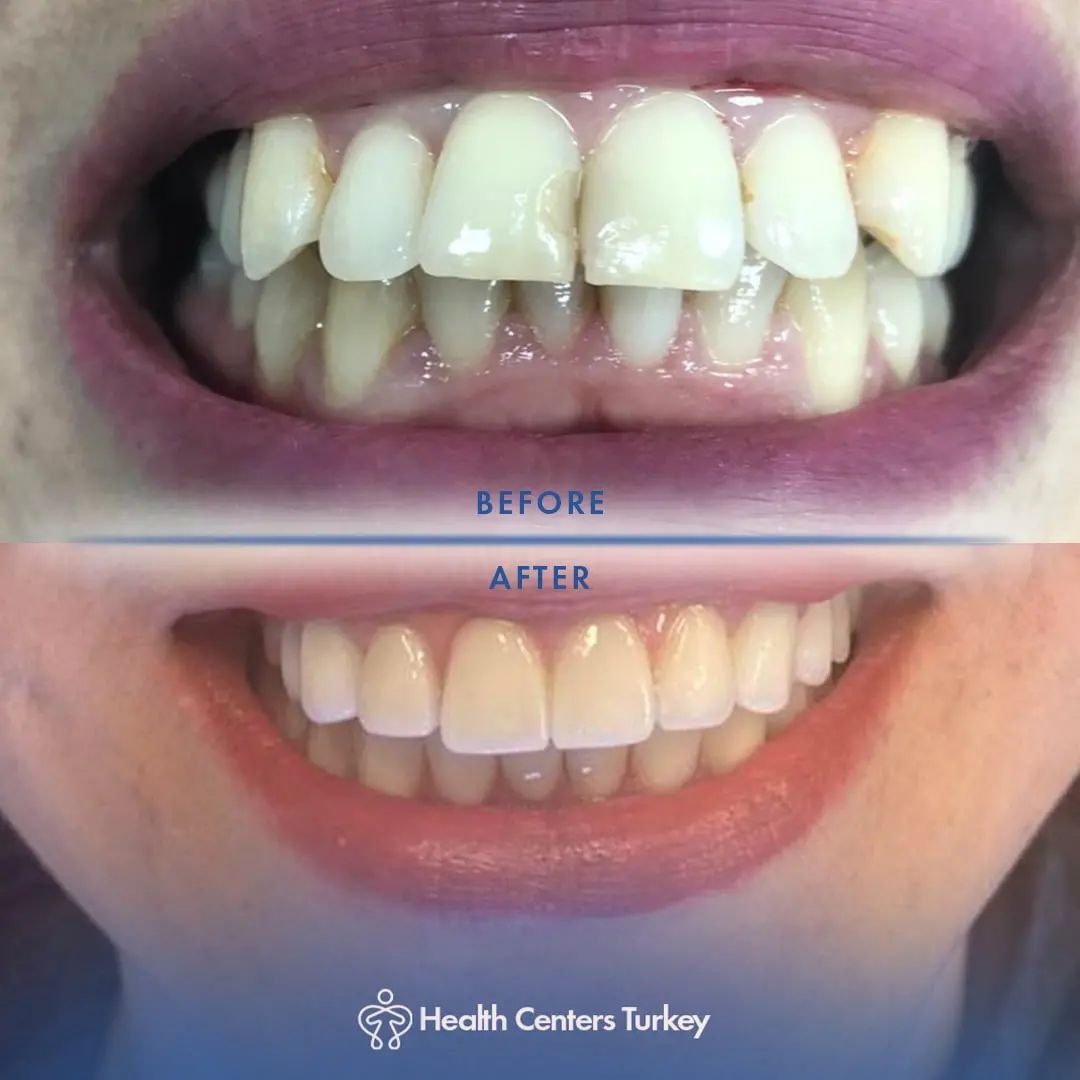Quick Care Services for On-the-Go Patients

Dental implants have turn into a focal point in trendy dentistry, offering a dependable solution for these going through tooth loss. Among the multiple advantages they offer, one important aspect price considering is their influence on adjacent teeth. Understanding how dental implants affect surrounding teeth aids in making informed choices about oral health.
When a tooth is lost, neighboring teeth can easily shift towards the space left behind. This motion can result in misalignment, which compromises the overall chew and function of the mouth. Dental implants mimic natural tooth roots, thereby maintaining the place of adjacent teeth.
Achieve Your Desired Teeth Look with Expert Care at Turkey's Dental Clinics
The stability provided by an implant is crucial, because it helps in preserving not just the physical alignment but additionally the structural integrity of the jawbone. When a tooth is missing, the underlying bone can start to deteriorate as a outcome of lack of stimulation. An implant exerts pressure on the bone during chewing, just like a natural tooth, which promotes bone health.
In some circumstances, a bridge or partial denture may be thought-about as an alternative alternative to implants. While these options might restore some performance, they'll place additional stress on neighboring teeth. Bridges usually require submitting down the encircling teeth to accommodate the anchors, thereby affecting their health over time. Dental implants, however, do not alter present teeth, making them a extra conservative alternative.
Get Cost-Effective Teeth Work that Meet Your Needs in Turkey
Hygiene becomes one other important issue when considering adjacent teeth in the context of implants. With dental implants, the person can preserve an everyday hygiene routine similar to natural teeth. Flossing and brushing across the implant are straightforward, making certain that the gum tissue remains wholesome and minimizing the danger of gum disease that might adversely have an effect on adjacent teeth.
Moreover, the materials used in dental implants are biocompatible. This means they are designed to integrate properly with the physique, lowering the possibilities of an opposed response. This attribute not solely makes the implant safe but also protects nearby teeth from potential issues that could arise due to contamination or infection.
In terms of aesthetics, dental implants supply a natural appear and feel, intently resembling unique teeth. Adjacent teeth profit from this aesthetic attraction as properly. When an implant is placed, the encompassing gum tissue could be shaped to mimic natural contours, thereby enhancing the overall appearance of the smile. This aesthetic factor can encourage people to invest in their oral care routines, benefiting each the implants and adjacent teeth in the long term.
Investigate Treatment Alternatives for Dental Implants
Another concern is the potential for gum disease, which can have an effect on the health of adjacent teeth. Gum disease can occur when plaque builds up around teeth and implants. Regular dental visits and appropriate oral hygiene can mitigate this concern. The presence of implants can also function a motivator for better dental hygiene practices, as people turn into extra acutely aware of sustaining their general mouth health.
Studies have shown that dental implants can contribute to a significant improvement in quality of life. Patients often experience elevated confidence and are much less hesitant to smile or interact in social interactions. A healthy and well-maintained smile indirectly promotes better look after adjacent teeth, as individuals tend to become extra conscious of their general oral hygiene.
One often-overlooked facet is the psychological impact of dental implants on patients. Knowing that implants provide long-term options can ease the anxiety associated with tooth loss. With fewer worries about future tooth shifts, sufferers are more likely to make investments effort and time into caring for their teeth, which includes adjacent teeth.
In conclusion, dental implants serve as greater than just a resolution for missing teeth; they play a pivotal position in sustaining the health and integrity of adjacent teeth. From stopping misalignment to promoting gum health and enhancing aesthetics, the advantages are manifold. By opting for implants, people cannot solely restore functionality but also foster a more healthy oral surroundings for surrounding teeth. The psychological and aesthetic advantages additional contribute to an overall enhanced quality of life.
Navigate the Premier Choices for Dental Care in Turkey
In the long term, understanding how dental implants affect adjacent teeth can information individuals in making empowered selections regarding their dental health. The integration of those implants into the mouth acts as a stabilizing force, safeguarding each the physical alignment and performance of neighboring teeth, whereas promoting a long-lasting, healthy smile.
- Dental implants usually do not exert stress on adjacent teeth, maintaining their integrity and decreasing the risk of shifting or misalignment.
- The placement of an implant typically encourages better oral hygiene habits, positively influencing the health of adjacent teeth via improved cleansing practices.
A Complete Guide to Dental Treatment Abroad in Turkey
- In some cases, dental implants can stimulate the encompassing bone, which helps protect the natural teeth's position and total dental structure.

- The gap left by missing teeth can lead to bone loss; dental implants can prevent this, thereby defending adjacent teeth from potential issues.
- Full-Service Cosmetic Solutions available in Turkey for a Beautiful Smile
Top Notch Cosmetic Dentistry Services Available in Turkey
- By restoring the perform of a missing tooth, implants help distribute chunk forces evenly, decreasing wear and stress on neighboring teeth.

- Properly placed dental implants can act as a help structure, preventing unwanted motion of adjacent teeth resulting from tooth loss.
- The presence of an implant might enhance the aesthetic appearance of surrounding teeth by filling in gaps and supporting facial structure.
Explore Top Dental Treatments in Turkey including Implants, Veneers, and More
- Dental implants get rid of the need for adjacent teeth alteration, unlike bridges, which require reshaping the nearby teeth for support.
- Implants also reduce the risk of gum disease in comparison with other tooth replacement choices, not directly benefiting adjacent teeth by selling general oral health.
Discover Full Range of Dental Services within Turkey.
- Long-term success of dental implants is linked to the health of surrounding teeth, emphasizing the significance of normal dental check-ups and maintenance.
How do dental implants have an effect on adjacent teeth?
Comprehensive Oral Health Solutions available in Turkey for a Beautiful Smile
What are dental implants and how do they work with adjacent teeth?undefinedDental implants are artificial tooth roots positioned into the jawbone to assist replacement teeth. They don’t have an result on adjacent teeth instantly, as they're unbiased buildings. Instead, they might help maintain the integrity of surrounding teeth by preventing bone loss.
Can dental implants trigger harm to adjacent teeth?undefinedIf placed correctly, dental implants should not hurt adjacent teeth. However, improper placement can result in issues like misalignment or strain, emphasizing the importance of choosing an experienced dental skilled.
Will dental implants promote bone progress learn this here now around adjacent teeth?undefinedYes, dental implants help stimulate the jawbone, which can encourage bone development. This can profit adjacent teeth by maintaining bone density and stability in the space.
Enhance Your Dental Aesthetics with Affordable Options in Turkey
Should I worry about gum disease affecting adjacent teeth after getting an implant?undefinedGood oral hygiene is crucial after getting an implant. Gum disease can nonetheless affect adjacent teeth, but a properly maintained implant doesn't improve that risk. Regular dental visits can help monitor and preserve gum health.
What occurs to adjacent teeth if I lose a dental implant?undefinedIf a dental implant fails or is lost, adjacent teeth could shift as a outcome of modifications in bite alignment and assist structure. This might lead to misalignment or extra tooth loss if not addressed.
Are there any special care necessities for adjacent teeth after getting implants?undefinedMaintaining good oral hygiene practices, together with regular brushing, flossing, and dental check-ups, is crucial for both dental implants and adjacent teeth to prevent decay and gum disease.
The Place for Quality Dental Care at Value Rates
Do dental implants assist help adjacent teeth when chewing?undefinedAbsolutely. Implants can improve total chew operate, which may alleviate stress on adjacent teeth during chewing. This can result in better distribution of forces, selling oral health.
How can I prevent problems with adjacent teeth and implants?undefinedConsistent dental care, including skilled cleanings and examinations, regular brushing and flossing, and following your dentist’s aftercare directions, are key to preventing issues.
Can adjacent teeth transfer if I have a dental implant?undefinedAdjacent teeth could move if they are not well-supported, particularly after tooth loss. A dental implant helps helpful resources maintain the structure, lowering the risk of shifting teeth.
Comments on “Benefit from Excellent Dental Care at Affordable Prices”